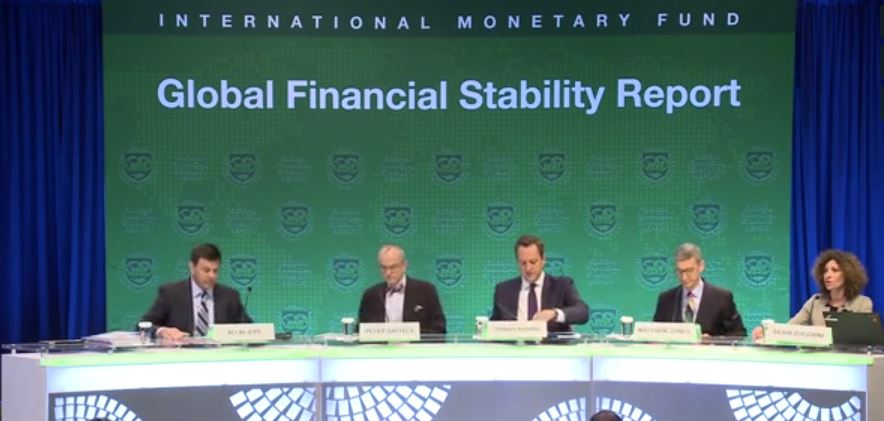Banks and capital markets continue to grow healthier a decade after the global financial crisis struck, but regulators and executives must not become complacent the IMF announced in the Global Financial Stability Report released Wednesday.
“Our key message is that this is no time for complacency. Action is required now because vulnerabilities are building. These vulnerabilities could put growth at risk in the future,” said Tobias Adrian, the IMF Director of the Monetary and Capital Markets Department Wednesday in Washington.
The IMF pointed to improvements tied to higher level of capital liquidity and resolutionary policies introduced since the financial crisis.
“Capital liquidity and resolution is making the core banking system much more resilient and much more stable. At the same time, there are there might be some unintended consequences of those regulations. And internationally, regulators are starting to evaluate the impacts of the regulatory reforms on credit supply and liquidity,” said Adrian.
This edition of the Global Financial Stability Report cautions that while the waters seem calm, financial vulnerabilities are building under the surface. The IMF called on policymakers to promote stability.
“We do feel that the current stance on monetary policy in the major economies is appropriate. In the U.S., the euro area and Japan, inflation remains below target. And, in some of those economies there are other signs of slack. So that further accommodative monetary policy is the right stance. Of course, as we’re pointing out in the Global Financial Stability Report, this accommodative stance on monetary policy is also fueling reaching for yield. And, our recommendation is to use macro-prudential policy tools to address the buildup of vulnerabilities,” said Adrian.
The Fund noted that China faces financial stability risks due to high levels of debt that have pushed banking sector assets from 240% up to 310% of GDP in the past five years, but also noted Beijing is making progress.
“Regulators in China have taken a number of measures in the past 12 months with better coordination across agencies to address many of these risks. And, this is very welcome, because it’s had a significant impact on slowing down some of the shadow-banking growth and reduce reliance on wholesale funding. But, these vulnerabilities overall will be difficult to address without slower credit growth,” said Matthew Jones, the IMF Assistant Director of the Monetary and Capital Markets Department.

















